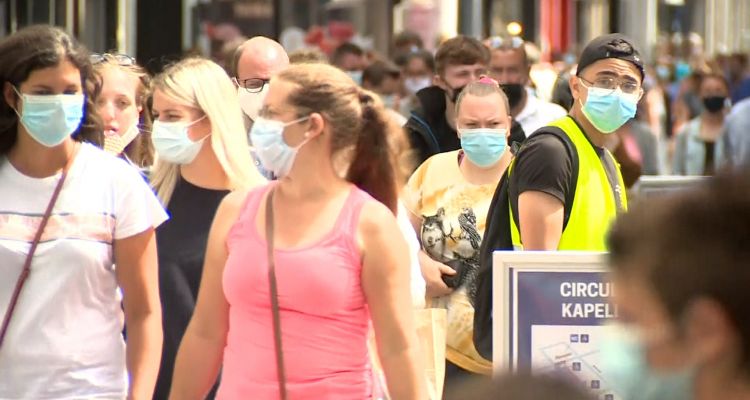The stabilisation of Belgium's coronavirus cases did not happen as expected, as the number of new cases not only keeps rising, but the increase is also accelerating again, health officials said during a press conference on Monday.
"The stabilisation that we had hoped for only last week has not continued," virologist and interfederal Covid-19 spokesperson Steven Van Gucht said. "On the contrary, we are once again seeing a clear increase in cases, in all provinces and all age groups."
With a daily average of over 2,100 new confirmed cases over the past week, the virus in Belgium is "following the same course as France and the Netherlands," according to him.
Related News
- Most of Belgium's new Covid-19 cases come from Brussels and Wallonia
- Belgium's recent Covid-19 case numbers included many who were not contagious
- Belgian average surges to over 2,100 daily coronavirus cases
France recorded almost 17,00 new cases in one day this weekend and placed Paris on "maximum alert" today, and the Netherlands also reported over 4,000 new infections in 24 hours on Sunday.
"The highest number of new infections still occur among twenty-somethings, closely followed by older teenagers," Van Gucht said, adding that the number of infections proportionally decreases with age.
"However, we are also seeing a worrying increase in the group of people over 90 years old," he said. Since the start of September, the number of cases in that age group has increased almost tenfold.
"This is, of course, very alarming, because this is a very vulnerable age group," Van Gucht added.
Additionally, while the increase can be seen in all provinces, the surge seems to be stronger in the Walloon provinces, Namur (+95%) and Luxembourg (+67%) in particular.
The highest number of new cases is still recorded in the Brussels-Capital Region, however, with an average of 466 new cases per day over the last week.
However, the tests used in Belgium are very sensitive and can detect the presence of the virus up to 83 days after infection, according to reports by Het Laatste Nieuws on Monday. The disadvantage is that people who carry dead parts of the virus - and are therefore no longer contagious - are also detected, and identified as a new case.
If only a small minority of the total number of positive tests would be concerned, the impact would be relatively small, but it seems that it concerns a very large number of cases detected last summer.
Despite the number of new cases potentially not being as high as reported, however, the number of new hospital admissions and patients in intensive care is also going up steadily. "There are currently 186 patients in intensive care, that is 38% more than the week before," he said.
Just under a third (52) of all patients in the ICU are currently being treated in hospitals in the Brussels-Capital Region. However, new patients are already being transferred to hospitals outside the region, as several hospitals have reached their capacity if they want to continue to guarantee regular care.
Maïthé Chini
The Brussels Times

